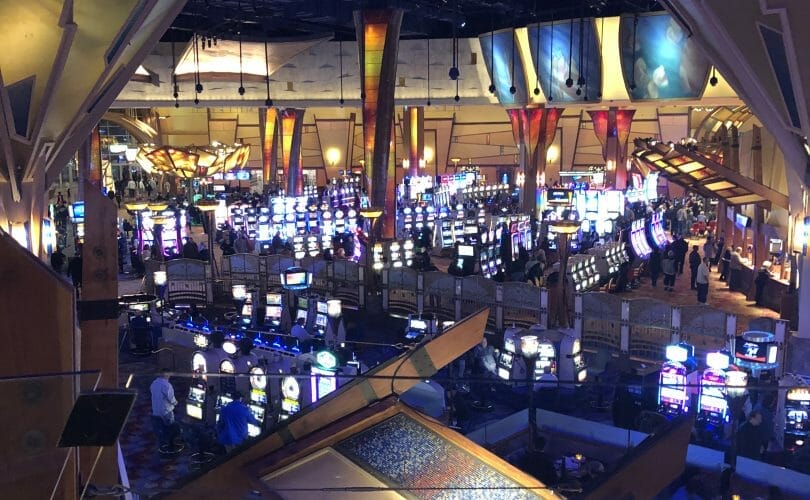Many casino players are aware of, but have never had many interactions with a casino host. I’m one of them, but I’m aware of how the system generally works, and know many people who do have them.
Many players wonder if they should have a host, or what a host does. And while I’ve talked about comps here quite a bit over the past year, I’ve never focused in on the role of a host in this equation.
In today’s post I’m going to discuss the general role of a host. In an upcoming post I’m going to share an example of what I’ve seen on slot forums around the question of hosts, and talk about that scenario in depth about whether it warrants a host, and why.
Book Your Trips
The first thing a host can handle is booking your trips. If you’re at the low end of the totem pole for a host they’re most likely going not going to be able to do much more than book your current offer. I see some players complain hosts aren’t bending over backwards for them, but ultimately for some players that’s the baseline they can offer.
For players higher in their portfolio, they’ll have more flexibility, and be able to take advantage of unusual conditions that might allow them to be a bit more generous to a player, such as a lower occupancy night with some nicer rooms still open. They may also be able to lock a room type in on their players’ behalf if something unusual is happening on property, whereas a comp reservation booked directly by a player may be adjusted.
In this way, they are your ears to the ground and can help you above and beyond what you can do yourself, but not in every case.
Access to Events
Hosts will generally have an allocation to various events on property, everything from shows to slot tournaments, and this is where the human touch will go beyond a computer calculated offer.
Hosts building or maintaining relationships with certain players will occasionally go above and beyond to reaffirm the relationship, or if they expect a player to overperform on a trip. If you’re a player that’s showing promise or have consistently strong play that outperforms what an offer gives them upfront.
Back-End Comps
Speaking of those offers, sometimes they’re called “Front-End Comps,” because you are given them upfront, based on your play, as an enticement to come back and hopefully play that much again. These are estimations based on your previous play, and as such don’t reflect what you might actually do on a trip.
A host can review your play for a trip at the conclusion of your visit, and make a decision to grant additional “Back-End Comps” based on your overall play for that trip. The same casino math used for offers, such as looking at your total coin-in and your expected loss given that coin-in.
If you outperform your expected play, and have charged items back to the room such as food or experiences, they may be able to take charges off.
Most casinos have a marketing spend calculated between 20 and 40 percent of a player’s expected losses they’re willing to reinvest in a player through front-end or back-end comps.
Keep in mind some places require you to “earn” the value of your offer. Some factor in the comp dollars that you earn as part of what you get from an offer. Others may require you to exhaust your comp dollars before getting any back-end comps (Caesars is notorious for this).
Sometimes if your losses are well above the expected value, a casino may look at total loss and comp based on that. Total loss comps may be a lower value than expected loss, but opens the door for a host to offer something on a rough trip.
Finally, hosts may have the ability to comp at a somewhat higher level than a standard offer would maintain, because they’re retaining higher value clients. This isn’t the case in all properties, or even all the time at ones that do this, but this is probably one key differentiation. Of course, you have to play at a high enough level to qualify for this to begin with.
Why They Can Do These Things
Hosts are not there just to be generous and give away the casino’s money – they’re another tool in the marketing toolkit to recruit and retain players of a certain value. They have to stick within the rules of what they can and can’t offer based on a player’s value to the casino, and as such, like many things in a casino, any risks they take on a player will be calculated ones.
Hosts want to encourage players to come back and play regularly, providing stability in the revenue the casino sees. They get paid based on the performance of their portfolio, so naturally the players that help them maintain good numbers will get more attention than ones that are fading away.
What level a player qualifies for a host will naturally vary wildly; being at a host level for a casino like the Cosmo or the Venetian will be much different than a host at the Luxor or Flamingo. But because human beings are involved it’s going to be a high enough number to justify such interactions to begin with.
Some players may get a middle-layer “marketing executive” who really just helps to book more trips, reach out and make sure players know of their offers and so on. I had one of these through Caesars for a few years, and she never actually once returned an email or phone call to try to get a booking completed. But she always seemed to call right after I booked something on my own.
I did have a successful host interaction with the Caesars properties in Atlantic City the year I first made Diamond; I had a big trip relative to normal and asked a host on duty to review my play. After leveraging my Reward Credits, he then removed a number of other charges based on my play.
The thing to keep in mind is hosts aren’t based on your players card tier or visiting the casino a lot; it’s based on how much you spend when you do go (although you do need to go enough for them to invest your time, you don’t need to go every day or every week).
In the next post we’ll look at a scenario and whether a host would be expected, and why the conclusion was reached in that case.







